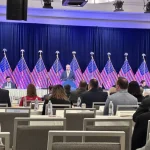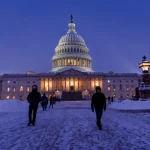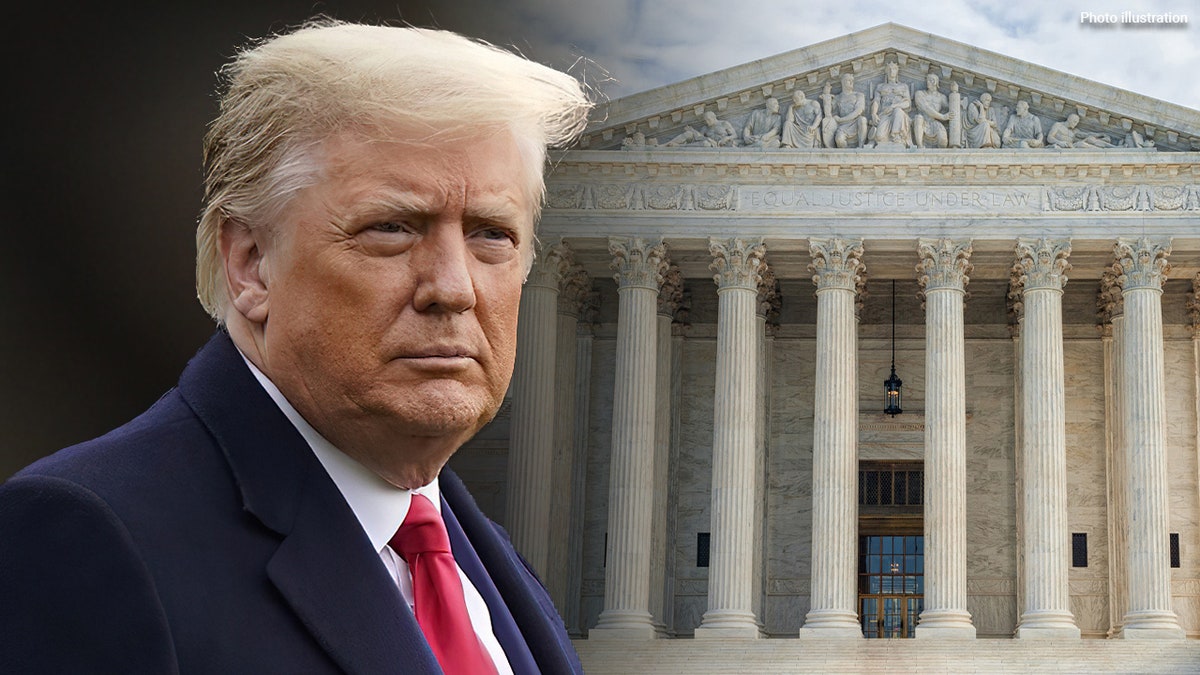
The Supreme Court waded cautiously Thursday in a landmark area of law it has never before encountered: whether former presidents have “absolute immunity” from criminal prosecution, stemming from the special counsel’s federal election interference case.
In a special courtroom session lasting more than two and a half hours, the justices appeared to be looking for middle ground that might see at least some of Trump’s sweeping claims dismissed, while still allowing future presidents to be criminally exempt from clearly official executive functions — like their role as commander in chief.
The official question the justices are confronting: “Whether, and if so, to what extent does a former president enjoy presidential immunity from criminal prosecution for conduct alleged to involve official acts during his tenure in office?”
SUPREME COURT SHARPLY AT ODDS OVER EMERGENCY ROOM ABORTION ACCESS IN STATES’ RIGHTS CHALLENGE
In riveting arguments, a partisan divide developed early on the nine-member bench, as it weighed whether and when executive official duties versus private conduct in office could be subject to prosecution.
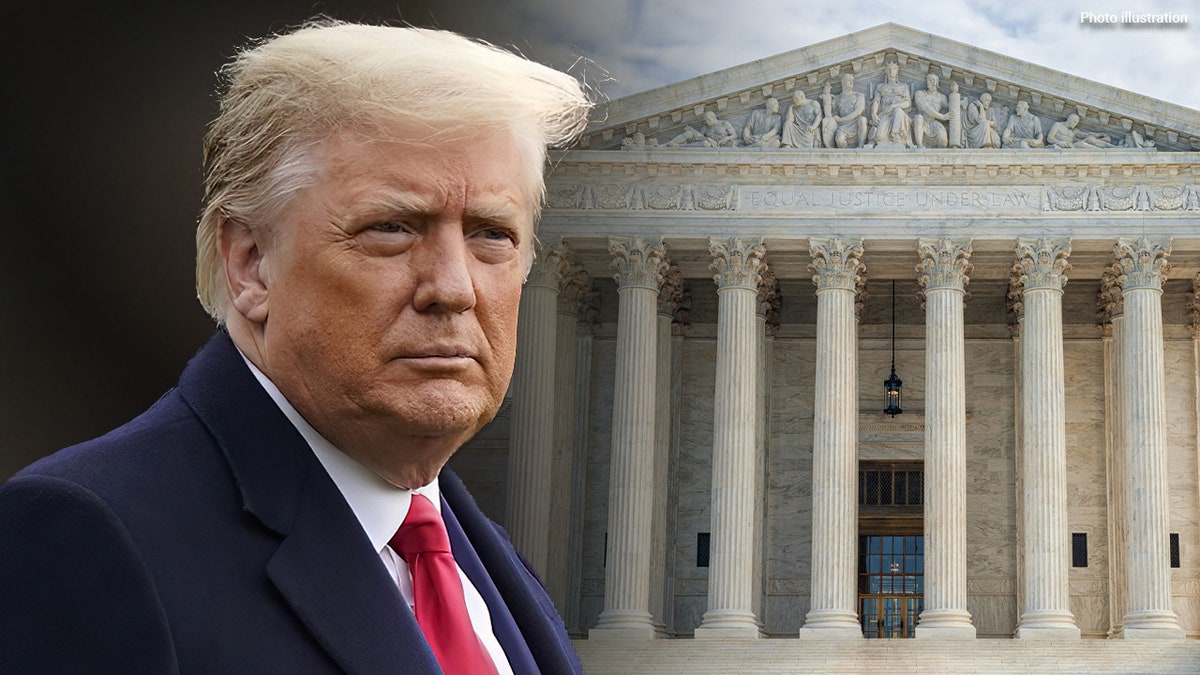
Trump was not in attendance at the argument but talked about the stakes when greeting supporters at a New York construction site. (Fox News)
Both liberal and conservative justices focused on the broader implications for future presidents.
“If the potential for criminal liability is taken off the table, wouldn’t there be a significant risk that future presidents would be emboldened to commit crimes with abandon while they’re in office?” asked Justice Ketanji Brown Jackson. “Once we say no criminal liability, Mr. President, you can do whatever you want, I’m worried that we would have a worse problem than the problem of the president feeling constrained to follow the law while he’s in office.”
Justice Samuel Alito asked, “If an incumbent who loses a very close, hotly contested election, knows that a real possibility after leaving office is not that the president is going to be able to go off into a peaceful retirement, but that the president may be criminally prosecuted by a bitter political opponent, will that not lead us into a cycle that destabilizes the functioning of our country as a democracy?”
Justice Brett Kavanaugh summed up the stakes, however the court rules: “This will have huge implications for the presidency.”
Trump was not in attendance at the argument but talked about the stakes when greeting supporters at a New York construction site.
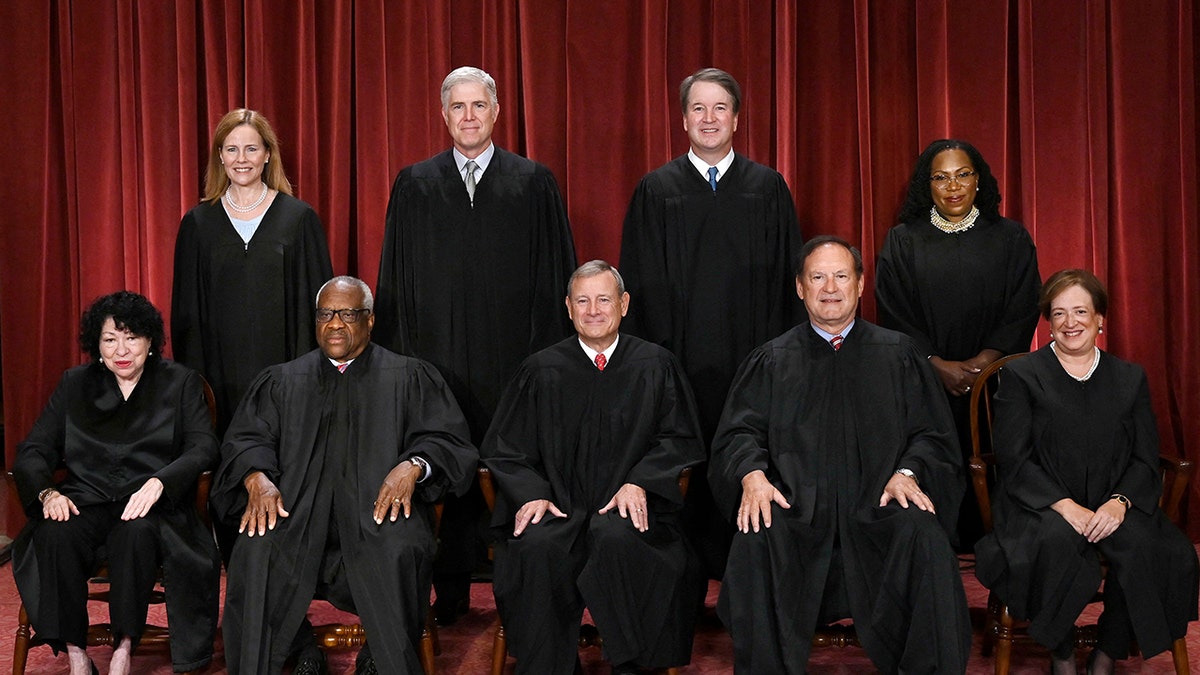
Justices of the U.S. Supreme Court pose for their official photo at the Supreme Court in Washington, D.C., on October 7, 2022. Seated from left: Associate Justice Sonia Sotomayor, Associate Justice Clarence Thomas, Chief Justice John Roberts, Associate Justice Samuel Alito and Associate Justice Elena Kagan, (Standing behind from left) Associate Justice Amy Coney Barrett, Associate Justice Neil Gorsuch, Associate Justice Brett Kavanaugh and Associate Justice Ketanji Brown Jackson. (OLIVIER DOULIERY/AFP via Getty Images)
“A president has to have immunity,” he said Thursday morning. “If you don’t have immunity, you just have a ceremonial president, you won’t have a president.”
The underlying factor is time — whether the court’s expedited ruling, expected in May or June, would allow any criminal trial to get underway before the November presidential election. Depending on the outcome, jury selection could begin by late summer or early fall, or the case could be delayed indefinitely or dismissed altogether.
SUPREME COURT SHARPLY DIVIDED OVER ENFORCING MUNICIPAL HOMELESS CAMPING BAN
The stakes could not be higher, for both the immediate political prospects and the long-term effect on the presidency itself and the rule of law.
As the presumptive GOP nominee to retake the White House, Trump is betting that his broad constitutional assertions will lead to a legal reprieve from the court’s 6-3 conservative majority — with three of its members having been appointed to the bench by the defendant himself.
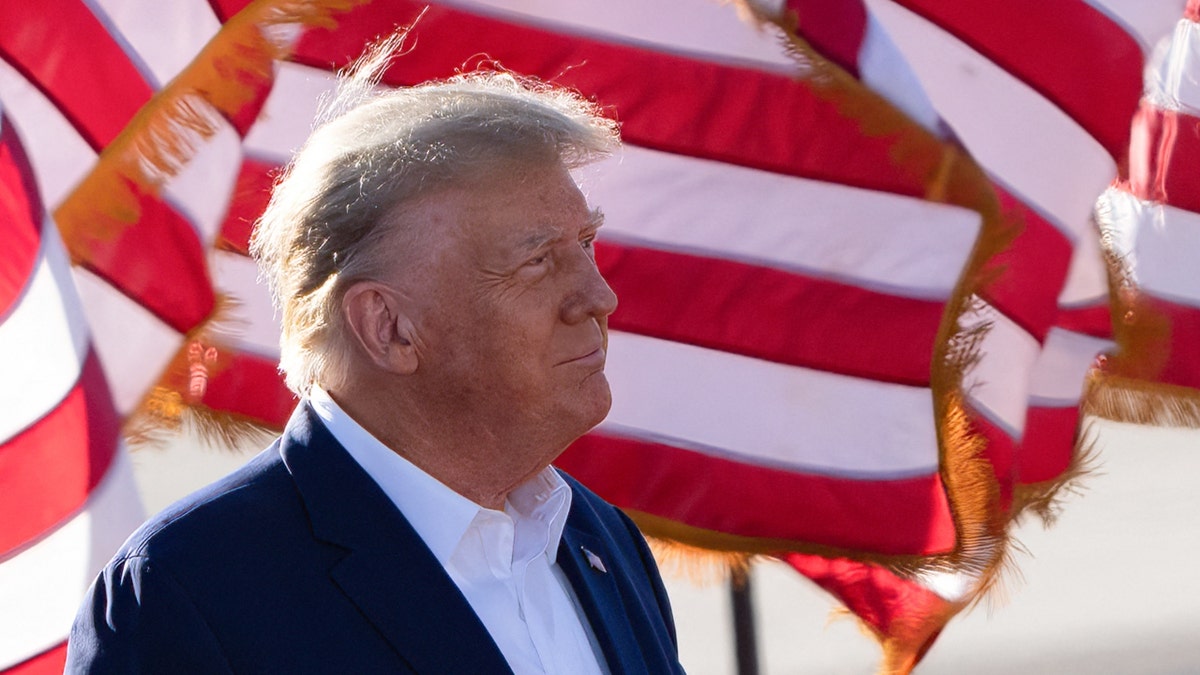
Former U.S. President Donald Trump speaks during a 2024 election campaign rally in Waco, Texas, March 25, 2023. (SUZANNE CORDEIRO/AFP via Getty Images)
Special Counsel Jack Smith has charged the former president with conspiracy to defraud the United States; conspiracy to obstruct an official proceeding; obstruction of and attempt to obstruct an official proceeding; and conspiracy against rights.
Those charges stemmed from Smith’s investigation into Trump’s alleged plotting to overturn the 2020 election results, including participation in a scheme to disrupt the electoral vote count leading to the subsequent January 6, 2021, U.S. Capitol riot. Smith and several of his deputies attended the arguments.
CLICK HERE TO GET THE FOX NEWS APP
Trump pleaded not guilty to all charges in August.
The case is Trump v. U.S. (23-939).






